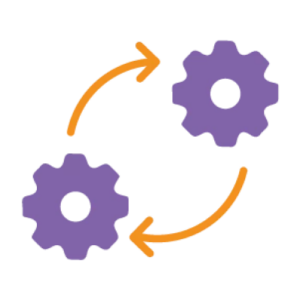If you’re wondering whether you must give up manual testing immediately upon implementing automation, there’s no need to worry. Using both strategies in side-by-side testing is ideal. In fact, this is one of the best practices for testing automation and allows you to ensure you have the correct set up running on the automated tasks while manually monitoring the execution.
Here are some of our tips for running side-by-side tests for optimal advantages during the early stages of implementation. Focus on tests that automate:
- Repetitive tasks
- Tests involving a high risk of human error
- Extremely time-intensive approaches
- Multiple data sets and builds
- High-risk conditions where mistakes cause critical issues
- Tests involving complex configurations and platforms
- Tests that are otherwise impossible to conduct manually
Testing success requires diligent planning and monitoring. After identifying and trying out an initial set of tests, refine your plan and ensure your testing is meeting goals.
Start by dividing tests into sets of logical groups to keep things manageable and coherent. From there, go beyond testing individual behaviors at specific times and broaden your test conditions. Add new tests and functionalities, testing each addition as you go.
Group individual, manual tests into larger sets of automated tests. You’ll quickly begin to see the benefits of scaling up with automated testing to reveal new insights and efficiencies.




 Automated testing implementation is fast. The best testing solutions come with common test scripts to make the process as smooth and thorough as possible.
Automated testing implementation is fast. The best testing solutions come with common test scripts to make the process as smooth and thorough as possible.  Testing
Testing  Automated testing brings a wide range of benefits for operational efficiency. Could these benefits help your organisation become even more productive than ever?
Automated testing brings a wide range of benefits for operational efficiency. Could these benefits help your organisation become even more productive than ever?


